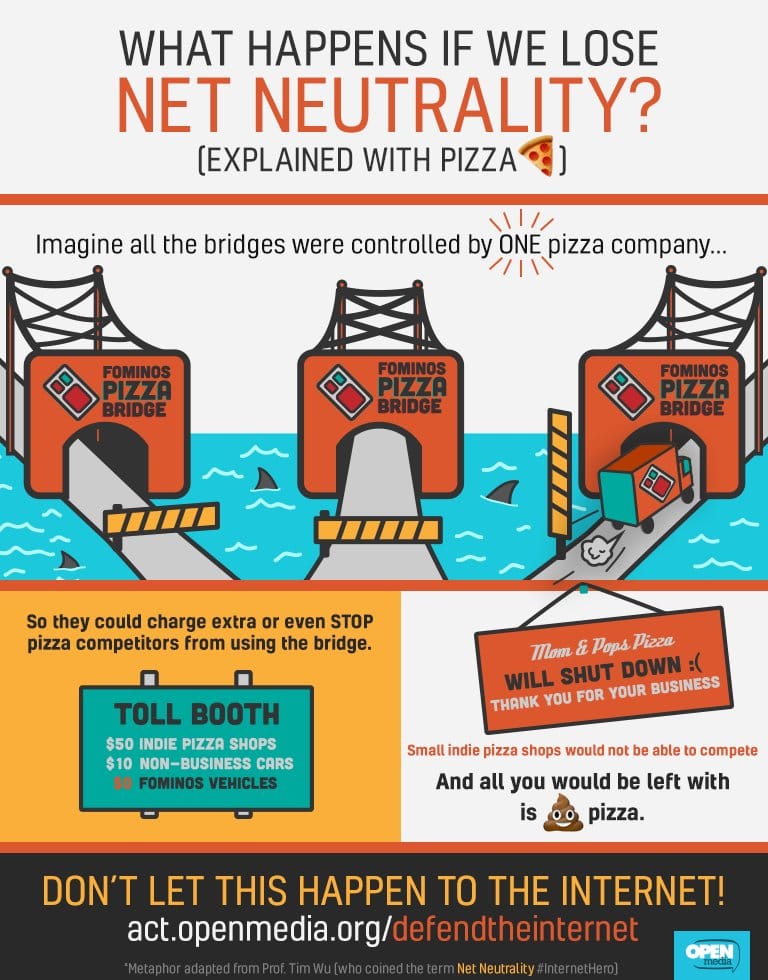What is Net Neutrality?

If you’re reading this right now thanks to a little thing called the internet and net neutrality. But what exactly is this net neutrality that everyone is talking about.
Net neutrality at its core is the idea that the Internet should be a free and open platform almost like a utility such as electricity that we use in our home. It is a concept that all traffic on the Internet should be treated the same. That means your internet provider can’t suddenly decide to slow down YouTube or Netflix because they’re not paying enough.
What net neutrality does?
No blocking: If the content you were trying to access is legal, your ISP shouldn’t be able to block it from you.
No throttling: ISP shouldn’t be able to slow or speed up certain content based on their preferences.
Increase transparency: ISPs should be open and honest with their consumers. Plain and simple!
And last but not the least,
No paid prioritization: No service should require a fee to get out of the slow lane.
Without net neutrality, ISPs would be able to charge customers for the use of certain websites; slow down the speed of some and even block some sites completely. Imagine having to pay Rs. 500 extra a month just a stream video online. No thanks!
Here’s a picture that’ll explain what happens if we don’t have net neutrality.

President Obama has asked the Federal Communications Commission (FCC) to keep the internet open and free. He asked the FCC to implement these set of rules. FCC Chairman Ajit Pai, who’s running the FCC put forth a proposal that will repeal the net neutrality rules. In a 3-2 vote, the FCC approved to remove the tough net neutrality rules it put in place two years ago.
We like these rules and if you enjoy the Internet I’m sure you do too. Net neutrality sure is amazing. ISPs and carriers will be able to charge you more for the services they deliver over the Internet. That’s great news for the telecom companies and internet providers that have been charging you exorbitant amounts for your internet connections over the years. But it’s bad news for us — the consumers.



Comments ()